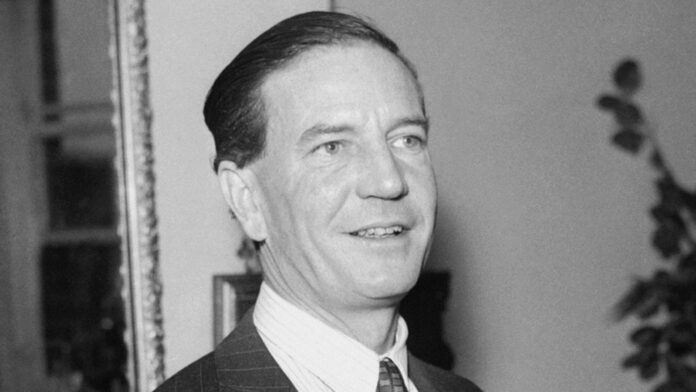
The British Library wanted to acquire the personal archive of the notorious double agent Kim Philby in a deal worth tens of thousands of pounds to his widow.
According to government files newly released by the National Archives in Kew, officials were horrified at the prospect that an institution such as the library could be party to an arrangement which would enrich the family of a man whose treachery was blamed for countless agent deaths.
The library tried to reassure the government that no public money would be involved and that they were looking for a “benefactor” to finance deal.
But the then cabinet secretary, Sir Robin Butler, warned even that would be unacceptable, writing: “I doubt whether this is a transaction that the British Library should promote or even whether they should agree to receive the papers.”
Philby, who was recruited by the KGB in the 1930s as part of the infamous Cambridge spy ring, had risen to become a senior officer in MI6 before coming under suspicion in the 1950s.
Read more:
Moscow names square after British double agent Kim Philby
Unmasked Spy ‘More Important Than Philby’
The library was first approached by his Russian fourth wife, Rufina, in 1993, five years after his death and 30 years after he fled to Moscow.
She wanted £68,000 for the collection which included details of a course Philby had run following his defection to the Soviet Union for KGB agents preparing to deploy to the UK.
There were also letters from the novelist Graham Greene, a friend from his MI6 days, and a history of the Communist Party signed by his fellow defector and double agent Guy Burgess.
In a letter to the Cabinet Office, a senior member of the library staff wrote: “The chief executive feels that these should be in a British public institution, provided they are what they purport to be, and have not been sanitised or made a vehicle for disinformation.
“He is not however willing to spend the grant-in-aid on them, and is looking for a benefactor. But we first must prevail on Mrs Philby to send them to London, for a thorough inspection.”
While no potential benefactor was named, it is believed they were thinking of Max Hastings, the then editor of The Daily Telegraph.
There is nothing in the files to indicate why they thought this or to suggest that Sir Max (as he now is) was aware of it.
In the Cabinet Office, officials feared a public backlash if such a deal was agreed, even if no public money was involved.
One official, Jon Sibson, warned: “I suspect that there might be something of an outcry if it became known that a public body was involved even in this way in a transaction which would enrich a traitor’s widow.”
Officials were wary however of directly confronting the library which jealously guarded its operational independence.
Following a meeting between the Department of National Heritage and the museum’s chairman of the trustees, the library quietly dropped its interest in the proposal.
Mrs Philby did not, however, lose out, with the various items in the collection selling for £150,000 when they were put up for auction at Sotheby’s.
